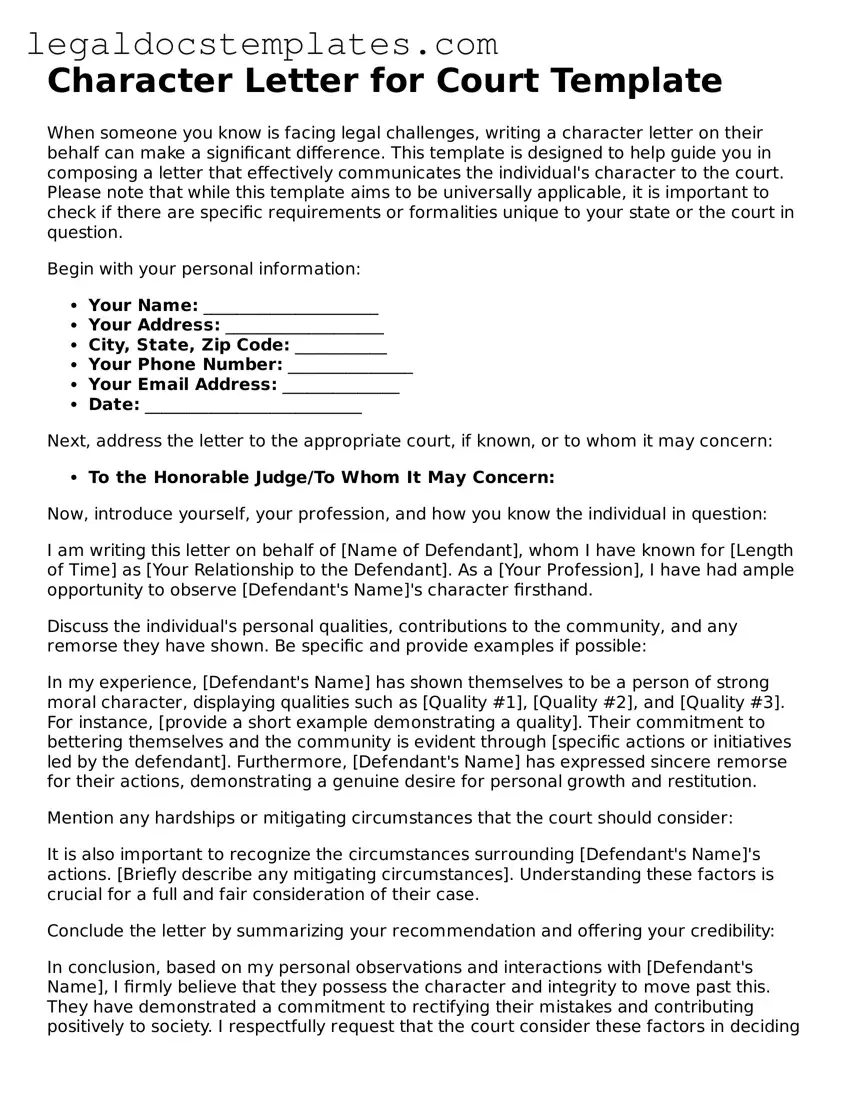Character Letter for Court Template
When someone you know is facing legal challenges, writing a character letter on their behalf can make a significant difference. This template is designed to help guide you in composing a letter that effectively communicates the individual's character to the court. Please note that while this template aims to be universally applicable, it is important to check if there are specific requirements or formalities unique to your state or the court in question.
Begin with your personal information:
- Your Name: _____________________
- Your Address: ___________________
- City, State, Zip Code: ___________
- Your Phone Number: _______________
- Your Email Address: ______________
- Date: __________________________
Next, address the letter to the appropriate court, if known, or to whom it may concern:
- To the Honorable Judge/To Whom It May Concern:
Now, introduce yourself, your profession, and how you know the individual in question:
I am writing this letter on behalf of [Name of Defendant], whom I have known for [Length of Time] as [Your Relationship to the Defendant]. As a [Your Profession], I have had ample opportunity to observe [Defendant's Name]'s character firsthand.
Discuss the individual's personal qualities, contributions to the community, and any remorse they have shown. Be specific and provide examples if possible:
In my experience, [Defendant's Name] has shown themselves to be a person of strong moral character, displaying qualities such as [Quality #1], [Quality #2], and [Quality #3]. For instance, [provide a short example demonstrating a quality]. Their commitment to bettering themselves and the community is evident through [specific actions or initiatives led by the defendant]. Furthermore, [Defendant's Name] has expressed sincere remorse for their actions, demonstrating a genuine desire for personal growth and restitution.
Mention any hardships or mitigating circumstances that the court should consider:
It is also important to recognize the circumstances surrounding [Defendant's Name]'s actions. [Briefly describe any mitigating circumstances]. Understanding these factors is crucial for a full and fair consideration of their case.
Conclude the letter by summarizing your recommendation and offering your credibility:
In conclusion, based on my personal observations and interactions with [Defendant's Name], I firmly believe that they possess the character and integrity to move past this. They have demonstrated a commitment to rectifying their mistakes and contributing positively to society. I respectfully request that the court consider these factors in deciding upon [Defendant's Name]'s case. Please feel free to contact me should you require any additional information or insight.
Sincerely,
_____________________
(Your Name)

